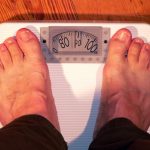How To Tell If Effexor Is Working

What is Effexor?
Effexor is a brand of venlafaxine, a medication used to treat depression. Effexor extended-release (long-acting) capsules are also used to treat generalized anxiety disorder (GAD; excessive worrying that is difficult to control), social anxiety disorder (extreme fear of interacting with others or performing in front of others that interferes with normal life), and panic disorder (sudden, unexpected attacks of extreme fear and worry about these attacks).
Effexor may also be helpful when prescribed “off-label” for attention-deficit/hyperactivity disorder (ADHD) in adults and children/adolescents, diabetic neuropathy, migraine prevention, hot flashes, obsessive compulsive disorder (OCD), posttraumatic stress disorder (PTSD), and premenstrual dysphoric disorder (PMDD). “Off-label” means that it hasn’t been approved by the Food and Drug Administration for this condition.
The U.S. Food and Drug Administration approved Effexor in 1993 to treat major depressive disorder in adults. An extended-release version called Effexor XR won FDA approval in 1997. Both formulas contain the same active ingredient, venlafaxine.
Wyeth Pharmaceuticals Inc. manufactured both the original and extended-release versions until Pfizer acquired the company in 2009. Today, Pfizer only markets the extended-release version, which is also approved to treat generalized anxiety disorder, social anxiety disorder, and panic disorder.
How Effexor works
Venlafaxine the active ingredient in Effexor is in a class of medications called selective serotonin and norepinephrine reuptake inhibitors (SNRIs). It works by increasing the amounts of serotonin and norepinephrine, natural substances in the brain that help maintain mental balance.
How should Effexor be used?
Effexor comes as a tablet or extended-release capsule to take by mouth. The tablet is usually taken two or three times a day with food. The extended-release capsule is usually taken once daily in the morning or evening with food. Take venlafaxine at around the same time(s) every day. Follow the directions on your prescription label carefully, and ask your doctor or pharmacist to explain any part you do not understand.
Typical dosing for venlafaxine (Effexor)
Generalized anxiety disorder (Extended-Release): Start with 75 mg by mouth once a day. Some people may need to start at a lower dose of 37.5 mg daily and then increase to 75 mg by mouth daily after 4 to 7 days once they have adjusted to the medication. The maximum daily dose is 225 mg a day.
Depression (Extended-Release): Start with 75 mg by mouth once a day. Some people may need to start at a lower dose of 37.5 mg daily and then increase to 75 mg by mouth daily after 4 to 7 days once they have adjusted to the medication. The maximum daily dose is 225 mg a day.
Depression (Immediate-Release): Start with 37.5 mg by mouth once a day. After 4 days, your provider may raise your dose if you’re tolerating the medication. But, doses greater than 37.5 mg should be given in 2 or 3 divided doses in one day. The maximum daily dose is 375 mg a day.
Panic Disorder (Extended-Release): Start with 37.5 mg by mouth once a day for 1 week. After a week, your provider may raise your dose to 75 mg by mouth once a day. The maximum daily dose is 225 mg a day.
Social anxiety disorder (Extended-Release): Take 75 mg by mouth once a day. This is the maximum dose you should take for social anxiety because higher doses don’t provide more benefit.
Take Effexor exactly as directed. Do not take more or less of it or take it more often or for a longer period of time than prescribed by your doctor.
Swallow the extended-release capsule whole; do not split, chew, crush it, or place it in water. If you cannot swallow the extended-release capsule, you may carefully open the capsule and sprinkle the entire contents on a spoonful of applesauce. Swallow (without chewing) this mixture immediately after preparation and then drink a glass of water to make sure that you have swallowed all of the medication.
Your doctor will probably start you on a low dose of Effexor and gradually increase your dose, not more often than once every 4 to 7 days. Tell your doctor how you are feeling during your treatment so that your doctor can adjust your dose properly.
Effexor controls depression but does not cure it. It may take several weeks or longer for you to feel the full benefit of this medication. Continue to take Effexor even if you feel well. Do not stop taking Effexor without talking to your doctor. Your doctor will probably decrease your dose gradually. If you suddenly stop taking Effexor, you may experience withdrawal symptoms such as agitation; anxiety; tiredness; confusion; mood changes; headache; dizziness; irritability; frenzied or abnormal excitement; lack of coordination; trouble falling asleep or staying asleep; nightmares; nausea; vomiting; loss of appetite; diarrhea; dry mouth; sweating; uncontrollable shaking of a part of the body; ringing in the ears; blurred vision; seizures; or burning, tingling, numbness, or electric shock-like feelings in any part of the body. Tell your doctor if you experience any of these symptoms while you are decreasing your dose of Effexor or soon after you stop taking Effexor.
How to tell if Effexor is working
After taking Effexor, venlafaxine is metabolized to its active metabolite, O-desmethylvenlafaxine (ODV) and peak plasma concentrations of venlafaxine and ODV occur in 2 and 3 hours, respectively. Following the administration of Effexor prolonged-release dosage, peak plasma concentrations of venlafaxine and ODV are attained within 5.5 hours and 9 hours, respectively.
Although Effexor starts working as soon as it’s absorbed by your body, it typically takes several weeks to produce any noticeable changes.
When Effexor starts working, symptoms of major depressive disorder (MDD) and other conditions being treated will begin to wane and you will notice the following signs:
- Increased interest in things you used to enjoy
- Feelings of happiness or joy
- Less trouble thinking or focusing
- Improved sleep pattern
- Improvement in emotional stability
When Effexor is working, you may also experience some improvement in your appetite and energy level in the first one to two weeks of using Effexor.
Make sure your doctor knows your complete medical history. Effexor should be used with caution if you have:
• Brain disease or damage, or a history of seizures: The risk of seizures may be increased when taking Effexor.
• Heart disease or high or low blood pressure: Effexor may occasionally make these conditions worse.
• History of mania: The risk of developing mania may be increased while taking Effexor. Obviously, this is very important for bipolar patients to watch for.
• Kidney disease or liver disease: Higher blood levels of Effexor may occur, increasing the chance of side effects. Your doctor may need to adjust your dose.
Warnings and Interactions
Warnings are established to both ensure the safe use and discontinuation of Effexor. Your doctor should monitor you for the following complications while you’re taking Effexor.
Serotonin Syndrome
Be careful when mixing Effexor with other medicines that also affect serotonin levels, such as other antidepressants, lithium, and St. John’s wort. Doing so can lead to an excessive serotonin buildup in the brain. This can cause a condition called serotonin syndrome.
Symptoms of serotonin syndrome include:
• Confusion
• Diarrhea
• Dilated pupils
• Fever
• Loss of muscle coordination
• Muscle stiffness
• Sudden spikes in blood pressure or heart rate
• Sweating or shivering
• Twitching muscles
• Unusual agitation or restlessness
Some cases of serotonin syndrome can be life-threatening. If you’re taking Effexor and experience any of these symptoms, contact your doctor as soon as possible.
Risk of Overdose
You should always avoid drinking or using other drugs while you’re taking Effexor. These substances may decrease the benefits of the medication, or they can result in a toxic overdose. The most common Effexor overdose effects include:
• Changes in consciousness (ranging from sleepiness to coma)
• Dilated pupils
• Fast heart rate
• Seizures
• Vomiting
To reduce your risk of overdose, your doctor will only prescribe you the lowest possible dose in the smallest quantity.





